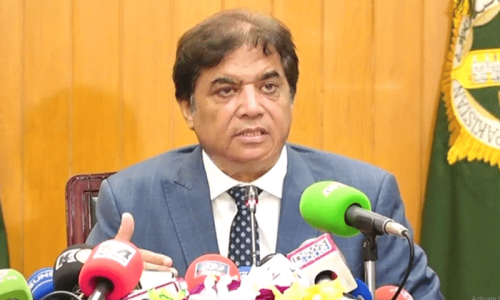ISLAMABAD, Aug 8 Ambassador Niaz A. Naik, who served as the country's foreign secretary during the mid-eighties but shot to fame as an architect of Pakistan-India back-channel diplomacy, was found dead at his residence on Saturday. He was 83.
Mr Naik was unmarried and had been living alone. It is believed that he may have died three or four days ago. There were conflicting claims about the cause of his death. Initially, it was said that he died of natural causes, but a preliminary autopsy suggested that he had been murdered.
A post-mortem at the Pakistan Institute of Medical Sciences said four of Mr Naik's right side ribs were broken and he had signs of trauma on his right lung and liver, indicating that he might have been subjected to torture. Additionally, injuries were found on other body parts, including the jaw and the neck.
A senior police official, talking to Dawn, said “Possibility of murder cannot be ruled out.”
Whether it was a murder or not would be established only after a report on the chemical examination of his body samples was available. The report is expected on Monday.
Mr Naik's death came to light after Foreign Secretary Salman Bashir's phone calls to him went unattended. Mr Bashir then sent an official of the Foreign Office to Mr Naik's house.
The official found the house locked from inside, but foul smell emanating from inside the house made him suspicious. He reported this to the foreign secretary, who requested the police to break open the house. Mr Naik's body was lying on the floor, when the police team entered the house.
Mr Naik had migrated to Pakistan from Indian Punjab and joined Foreign Service in 1949. He held various diplomatic positions before rising to the office of the foreign secretary. He spent a significant part of his career serving in various capacities at the Pakistani missions at the UN in New York and Geneva.
Known for his calm, politeness and gentle voice and shiny eyes, Mr Naik devoted his energies to bringing about a reconciliation between Pakistan and India.
As a foreign secretary he played a key role in the signing of pacts with India on trade, visas and defence.
After his retirement, Mr Naik got involved in the Neemrana Initiative — a Track-II project featuring eminent personalities from both sides of the border.
Mr Nawaz Sharif's landslide victory in 1997 saw the two South Asian countries embarking on a path of normalisation after decades of hostility. Modelled on the Palestinian-Israeli Oslo talks, Mr Sharif, after Prime Minister Vajpayee's memorable sojourn to Lahore in February 1999, picked Mr Naik as his point man for back-channel diplomacy. On the other side of the border, Mr Vajpayee appointed Mr R.K. Misra, a newspaper editor, as India's representative at the back-channel diplomacy.
The two back channel men started off the dialogue process in obscurity in New Delhi away from the media glare. It is said that Mr Naik had travelled incognito to New Delhi to avoid public attention.
During the 1999 Kargil war Mr Naik and Mr Misra were probably the only channel of communication left open between the two countries which were on the brink of war. Although Mr Naik's formula for ending the crisis failed because Mr Vajpayee is said to have backed out of the agreement at the last moment, but days later Washington brokered a deal which almost mirrored Mr Naik's plan except for minor changes.
The back-channel talks, meanwhile, became exposed and Mr Naik's cover was blown.
The Foreign Office till his death continued benefiting from his experience and he was regularly consulted on important issues by the government.
Condolences started flowing in as the news of his death broke.
In his condolence message, the President said that Mr Niaz A. Naik would be remembered for his great contribution to the country.
Prime Minister Syed Yusuf Raza Gilani expressed deep grief and sorrow over the death of former foreign secretary.
“Mr Niaz A. Naik was a distinguished diplomat who served Pakistan with great commitment and professionalism,” an official statement quoted Foreign Minister Shah Mehmood Qureshi as saying.
“The foreign ministry and the nation will always remember his services,” Mr Qureshi added.
The Ministry of Foreign Affairs, in a separate statement, noted “Mr Niaz A. Naik was an eminent diplomat who served the nation with great pride and distinction. He made his mark in both bilateral and multilateral diplomacy”.
Foreign Secretary Salman Bashir said Mr Naik was an illustrious member of the Foreign Service of Pakistan, imbued with exemplary commitment to safeguarding and promoting Pakistan's interests in the bilateral and multilateral realms.











































